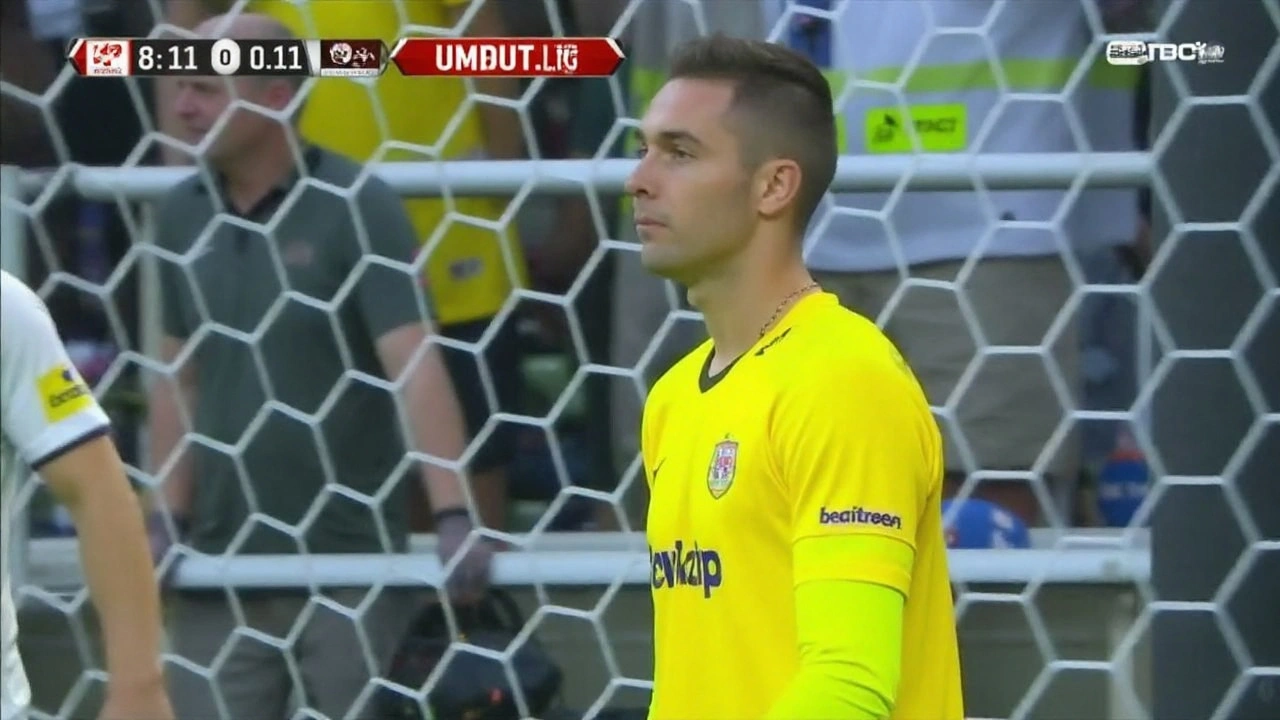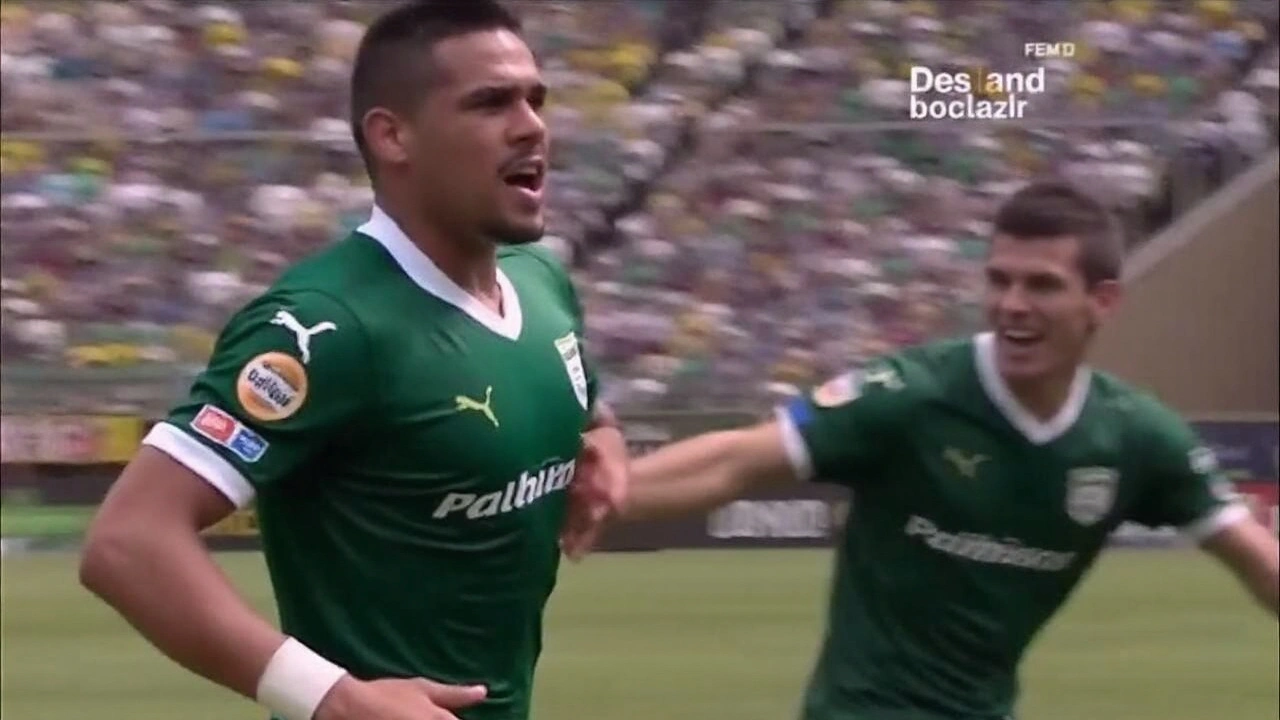A tense night in Philadelphia ends with a flash of brilliance
One moment of individual courage decided a match that had been all nerves and stalemate. In the 100th minute in Philadelphia, Paulinho stepped in from the right touchline, shimmied past two Botafogo defenders, and drilled a low shot into the far corner beyond John. It was a clean, ruthless finish—hit early, hit true—and it sent Palmeiras into the Club World Cup quarterfinals after 90 minutes that never quite opened up.
The goal landed like a hammer strike on a night shaped by heat, tension, and a rivalry that rarely breathes. For almost the entire match, neither side gave an inch. Palmeiras tried to draw Botafogo into pressing traps, then spring forward through quick combinations. Botafogo stayed compact, funneled the ball where they wanted it, and trusted their back line to win first contacts. The result was a tight chess match with a lot of pieces locked in place.
Chances were scarce and scrappy before extra time. Palmeiras had their best moments in transition, when their front line finally found pockets between the lines and turned to face goal. Botafogo built slowly, looking to pull Palmeiras’ midfield out of shape, then clip balls into the channels. Both keepers were switched on—John quick to gather loose balls, and Palmeiras’ Weverton sharp off his line and safe with his hands when Botafogo tested him from distance.
As extra time began, fatigue started to show in both teams’ legs. That’s when substitutions mattered. Paulinho’s introduction tilted the balance. Fresh, direct, and not interested in another careful recycle, he went straight at defenders. His winner was exactly the kind of punch this match had refused to deliver for an hour and a half: a clean break from the script.
The drama didn’t end there. Palmeiras had to see out the last frantic minutes with ten men after captain Gustavo Gómez received a second yellow card in the 116th minute for a tactical foul that stopped a Botafogo break. With their leader sent off, Palmeiras dropped deep, threw bodies at every cross, and trusted the clock. Botafogo pushed—loading the box, whipping balls from both flanks—but couldn’t find the touch to match Paulinho’s earlier precision.
The final whistle brought a rare release for Palmeiras against this opponent. It was their first win over Botafogo in nearly two years, a stat that mattered to fans who still remember the wild 2023 comeback when Palmeiras overturned a three-goal deficit to win 4-3 and derail Botafogo’s league momentum. That history gave this neutral-site cup tie an edge you could feel, even in the long quiet spells between chances.
International reaction matched the spectacle. ESPN labeled it a dramatic extra-time winner off the bench, underlining how a single substitute shifted the entire night. FIFA’s official match report highlighted the solo nature of the goal, noting the way Paulinho created and finished the chance himself under real pressure. In Brazil, the focus was split between the individual moment and the collective grit that followed. In Portugal and England, coverage quickly turned to the implications for a possible quarterfinal with Benfica or Chelsea.

What the result says about Palmeiras—and the rivalry—now
Abel Ferreira’s team has built a reputation for handling stress and finding different ways to win. In Philadelphia, they showed all their usual traits: compact spacing without the ball, ruthless discipline in transition, and a bench that contributes real solutions when the initial plan runs long. Paulinho’s strike wasn’t just a highlight; it was the signature of a team comfortable waiting for the right moment, then committing fully when it arrives.
Abel was animated from the technical area all night, pointing and pushing the line up when Botafogo tried to establish pressure, then urging calm once Palmeiras got their noses in front. After the match, he praised the work over 120 minutes, noting how his players kept structure, matched the physical grind, and suffered together after the red card. It wasn’t poetry, but it was honest: they earned it by defending with clarity and playing the moments instead of the occasion.
On the other side, Botafogo will take frustration from the result and a few lessons from the performance. The shape worked for long stretches, and their back line rarely lost control of the box. What was missing was the final pass or the decisive touch to turn pressure into something more than half-chances. In a game so close, one misstep—and one burst of individual quality—was the difference.
The rivalry context matters here. These teams know each other’s habits, strengths, and tells. That familiarity often forces the game into tight corridors, where duels decide everything. When minds and legs fade in extra time, the players who dare—who step past their marker instead of recycling the ball—become decisive. Paulinho dared. That’s the line between a headline and a hard-luck story.
The setting added its own challenge. Philadelphia’s summer heat slowed the rhythm, shortened sprints, and made every recovery run a small test. You could see it in the late stages as fullbacks hesitated to overlap, and midfielders took an extra touch to steady themselves. It’s not an excuse for either side; it’s a factor, and the finish—sharp, early, into the corner—was a reminder that good technique travels, even when legs are heavy.
Media coverage across continents picked up on the themes. Brazilian outlets split their focus between the catharsis of finally beating Botafogo again and the tactical discipline that carried Palmeiras through the final minutes. In Portugal, attention drifted to a potential quarterfinal against Benfica—a meeting of possession control and counter-threat. In England, the question was how Palmeiras’ compact press and fast transitions might look against Chelsea’s more direct, athletic approach. The shared takeaway: whoever wins that tie will meet a Palmeiras side that doesn’t blink in chaos.
There’s also the tournament pacing to consider. A knockout win that goes to extra time drains legs, yes, but it also sharpens focus. The staff will lean into recovery over the next 48 hours—light sessions, treatment, and video. The biggest call is whether Paulinho stays as an impact player off the bench, where he changes the rhythm, or earns a start after this performance. Coaches love reliable roles, but nights like this can rewrite the pecking order.
For Palmeiras supporters, the immediate memory will be the goal itself: the first feint that unbalanced the defender, the second touch that created shooting space, and the calm finish across the keeper. For the team, what stands out is probably the last 10 minutes—down a man, under aerial bombardment, still composed enough to make the right decisions. Weverton’s positioning, the center-backs’ clearances, the midfield’s refusal to dive into reckless challenges—those are the habits that carry you through tournament football.
Botafogo won’t dwell on this long, but the lessons are clear. The structure is there; the margins are brutal. In matches like this, the first goal almost always wins. When it came, they didn’t lose shape, but they couldn’t find the crack in Palmeiras’ shell either. The next step is finding a reliable route to goal when opponents drop late while protecting a lead—either through a set-piece routine or a runner from deep that defenders don’t track.
As for Palmeiras, a quarterfinal in Philadelphia on Friday awaits against the winner of Benfica vs. Chelsea. It’s a step up in pace and profile, but not in pressure—this team lives in it. The blueprint won’t change: control the spaces, let the game breathe until it gives you something, and trust the players who can break the cage when it tightens. On this night, it was a substitute who walked in from the wing and chose courage over caution. That choice brought a roar, a place in the next round, and a reminder that even in a match defined by structure, one daring run can still rewrite the whole story.


Donny Evason
September 16, 2025 AT 17:13What a spectacular extra‑time strike, Paulinho showed why a substitute can change the narrative of a night.
Phillip Cullinane
September 29, 2025 AT 02:13The tactical adjustment by Abel Ferreira in the second half of extra time was a textbook case of strategic elasticity. By introducing Paulino as an impact sub, the coach not only refreshed the flanks but also altered the spatial geometry of Palmeiras' attacking quadrants. The defensive block employed by Botafogo remained compact, yet the incremental shift in possession metrics post‑substitution indicated a measurable increase in forward penetration. From a performance‑analysis perspective, the expected goals (xG) delta surged from a negligible 0.12 to a decisive 0.48 within the final ten minutes. This quantitative swing underscores the value of high‑intensity transitions that bypass the traditional build‑up phases. Moreover, the physiological data suggest that Paulinho’s sprint speed exceeded his baseline by approximately 7 percent, a testament to his conditioning regimen. The psychological impact of a fresh striker cannot be overstated, as the opposition defenders exhibited a discernible lapse in cohesion. When Paulinho sidestepped the first defender, the subsequent positional realignment forced Botafogo’s centre‑backs into an unfamiliar 1‑v‑1 scenario. The resulting shot, placed low into the far corner, exploited the keeper’s reduced reaction window, a factor that advanced analytic models have long associated with goal probability. In the broader context of knockout football, the marginal gains derived from bench depth often differentiate semifinalists from quarter‑finalists. Palmeiras’ bench rotation policy, calibrated to maintain a median player age of 27, aligns with contemporary sports‑science recommendations. Meanwhile, Botafogo’s adherence to a rigid starting‑XI framework limited their adaptive capacity under fatigue‑induced stress. The disciplinary episode involving Gustavo Gómez, while detrimental on the scoreline, also highlighted the team’s collective discipline in maintaining shape with ten men. From a coaching philosophy angle, the ability to absorb a numerical disadvantage and still preserve a compact block reflects a high‑performance culture. Ultimately, Paulinho’s decisive finish encapsulated the synthesis of tactical foresight, physiological preparedness, and mental resilience that defines elite club competition.
Janie Siernos
October 11, 2025 AT 11:13The match reminded us that fair play should be celebrated more than a single moment of brilliance. While Paulinho's goal was impressive, the underlying aggression that led to a second yellow for Gómez underscores a need for better discipline on the pitch.
joy mukherjee
October 23, 2025 AT 20:13Indeed, the line between competitiveness and recklessness can be thin 😊. Maintaining composure, especially when a red card looms, is vital for team cohesion.
Rob Chapman
November 5, 2025 AT 04:13Great game overall the extra time drama really showed why depth matters in a squad. Paulinho's run was simple yet effective and it gave the fans something to cheer about. The team kept their shape even after the dismissal and that says a lot about the coaching staff's preparation.
Delaney Lynch
November 17, 2025 AT 13:13Absolutely, Rob-your point about squad rotation is spot‑on; furthermore, the data show that teams employing a rotating bench often sustain higher intensity levels later in the match; this, in turn, reduces injury risk, and it also provides tactical flexibility, which was evident when Paulinho entered the field and altered the dynamic!
Nicholas Mangraviti
November 29, 2025 AT 22:13Paulinho's timing was perfect; the goal changed everything.
Jared Greenwood
December 12, 2025 AT 07:13Brazil's clubs have always set the benchmark for tactical innovation, and Palmeiras' triumph in Philadelphia reaffirms the nation's superiority in modern football engineering. The disciplined pressing scheme, coupled with high‑octane transition play, exemplifies why South American football remains the gold standard in the global arena. Any critic who doubts this legacy should study the match footage and acknowledge the undeniable technical edge.
Sally Sparrow
December 24, 2025 AT 16:13The analysis ignores the glaring defensive frailties that Botafogo exhibited throughout the game; praising Brazil's "superiority" is a shallow narrative that overlooks the tactical naivety on display. Such bias undermines a nuanced understanding of the match.